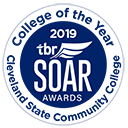Curators
Curators
25-4012.00
Median wages
$48,670
Administer collections, such as artwork, collectibles, historic items, or scientific specimens of museums or other institutions. May conduct instructional, research, or public service activities of institution.
- Plan and organize the acquisition, storage, and exhibition of collections and related materials, including the selection of exhibition themes and designs, and develop or install exhibit materials.

- Write and review grant proposals, journal articles, institutional reports, and publicity materials.

- Plan and conduct special research projects in area of interest or expertise.

- Confer with the board of directors to formulate and interpret policies, to determine budget requirements, and to plan overall operations.

- Train and supervise curatorial, fiscal, technical, research, and clerical staff, as well as volunteers or interns.

- Develop and maintain an institution's registration, cataloging, and basic record-keeping systems, using computer databases.

- Negotiate and authorize purchase, sale, exchange, or loan of collections.

- Provide information from the institution's holdings to other curators and to the public.

- Attend meetings, conventions, and civic events to promote use of institution's services, to seek financing, and to maintain community alliances.

- Design, organize, or conduct tours, workshops, and instructional or educational sessions to acquaint individuals with an institution's facilities and materials.

- Inspect premises to assess the need for repairs and to ensure that climate and pest control issues are addressed.

- Study, examine, and test acquisitions to authenticate their origin, composition, history, and to assess their current value.

- Arrange insurance coverage for objects on loan or for special exhibits and recommend changes in coverage for the entire collection.

- Schedule events and organize details, including refreshment, entertainment, decorations, and the collection of any fees.
- Calendar and scheduling software — Scheduling software

- Computer aided design CAD software
 — Autodesk AutoCAD
— Autodesk AutoCAD 

- Data base user interface and query software — Artsystems Collections; FileMaker Pro
 ; Microsoft Access
; Microsoft Access  ; Vernon Systems Limited Vernon CMS
; Vernon Systems Limited Vernon CMS
- Desktop publishing software — Adobe Systems Adobe InDesign


- Development environment software — Microsoft Visual Studio


- Electronic mail software — Microsoft Outlook


- Graphics or photo imaging software — Adobe Systems Adobe Freehand; Adobe Systems Adobe Photoshop
 ; Graphics software; Microsoft Paint
; Graphics software; Microsoft Paint
- Internet browser software — Web browser software

- Office suite software — Corel WordPerfect; Microsoft Office

- Presentation software — Microsoft PowerPoint


- Project management software — Eloquent Systems Eloquent

- Spreadsheet software — Microsoft Excel


- Word processing software — Microsoft Word

![]() Hot Technology — a technology requirement frequently included in employer job postings.
Hot Technology — a technology requirement frequently included in employer job postings.
- Speaking — Talking to others to convey information effectively.

- Reading Comprehension — Understanding written sentences and paragraphs in work related documents.

- Active Listening — Giving full attention to what other people are saying, taking time to understand the points being made, asking questions as appropriate, and not interrupting at inappropriate times.

- Writing — Communicating effectively in writing as appropriate for the needs of the audience.

- Critical Thinking — Using logic and reasoning to identify the strengths and weaknesses of alternative solutions, conclusions or approaches to problems.

- Complex Problem Solving — Identifying complex problems and reviewing related information to develop and evaluate options and implement solutions.

- Judgment and Decision Making — Considering the relative costs and benefits of potential actions to choose the most appropriate one.

- Time Management — Managing one's own time and the time of others.

- Active Learning — Understanding the implications of new information for both current and future problem-solving and decision-making.

- Coordination — Adjusting actions in relation to others' actions.

- Monitoring — Monitoring/Assessing performance of yourself, other individuals, or organizations to make improvements or take corrective action.

- Systems Analysis — Determining how a system should work and how changes in conditions, operations, and the environment will affect outcomes.

- Instructing — Teaching others how to do something.

- Management of Material Resources — Obtaining and seeing to the appropriate use of equipment, facilities, and materials needed to do certain work.

- Management of Personnel Resources — Motivating, developing, and directing people as they work, identifying the best people for the job.

- Social Perceptiveness — Being aware of others' reactions and understanding why they react as they do.

- Systems Evaluation — Identifying measures or indicators of system performance and the actions needed to improve or correct performance, relative to the goals of the system.

- Management of Financial Resources — Determining how money will be spent to get the work done, and accounting for these expenditures.

- Negotiation — Bringing others together and trying to reconcile differences.

- Persuasion — Persuading others to change their minds or behavior.










